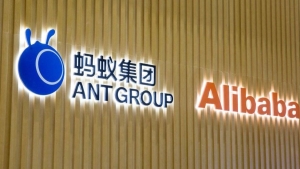It is no exaggeration to describe Alibaba’s restructuring as unprecedented. The company itself has called it the “most significant” organizational rejigging in its 24-year history. Under the restructuring, each unit will have its own chief executive and board of directors to expedite decision-making. The only unit that will remain wholly Alibaba owned will be the China e-commerce unit, Taobao Tmall Commerce Group.
There are likely some practical reasons for the restructuring that dovetail with political objectives. With six different business units, Alibaba should be better positioned to avoid allegations of monopolistic practices – which have cost it heavily in the past.
Meanwhile, the return of Alibaba founder Jack Ma to China just as the company announces this unprecedented restructuring seems unlikely to be coincidental. Ma had been out of the country for the past year for reasons that are not entirely clear, though he may simply have sought to keep a low profile during a politically sensitive period.
For Ma to return now makes perfect sense. It may signal that Beijing is preparing to put the tech crackdown in the rearview mirror as it seeks to revivify the world’s second largest economy. Zero-Covid restrictions exacted a heavy toll on the Chinese economy in 2022, when it grew just 3%. China’s dynamic private sector has to be confident about the business environment for the economy to genuinely recover. Consumers have to be confident to spend.
Although degrees of separation between Ant Group and Alibaba have been increasing since last year, there is no decoupling this restructuring from Ant’s fortunes. Indeed, Alibaba still owns 33% of Ant, and it wants the Ant IPO to get back on track. To do so, it has to assuage any remaining concerns Chinese regulators have about its business practices.
To be sure, this process remains incremental, and it is helpful to think of this restructuring as an important step along with the approval Ant received Ant earlier this year from the China Banking and Insurance Regulatory Commission to expand its consumer finance business. That too was a sign the company is making progress resolving regulators’ concerns.
Another good sign for Ant is the news that it injected an additional US$188 million into ANEXT, its Singapore digital bank. That suggests that Ant not only confident about the digibank’s prospects, but also its broader situation back home in China.

